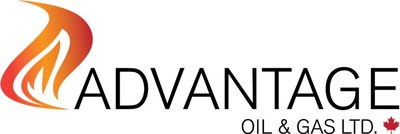¿Cuál es el precio actual de las acciones de Advantage Energy (PK)?
El precio actual de las acciones de Advantage Energy (PK) es US$ 6.33
¿Cuántas acciones de Advantage Energy (PK) están en circulación?
Advantage Energy (PK) tiene 166,972,093 acciones en circulación
¿Cuál es la capitalización de mercado de Advantage Energy (PK)?
La capitalización de mercado de Advantage Energy (PK) es USD 1.08B
¿Cuál es el rango de negociación de 1 año para el precio de las acciones de Advantage Energy (PK)?
Advantage Energy (PK) ha negociado en un rango de US$ 5.829 a US$ 8.58 durante el último año
¿Cuál es el ratio PE (precio/beneficio) de Advantage Energy (PK)?
El ratio precio/beneficio de Advantage Energy (PK) es 14.97
¿Cuál es el ratio de efectivo a ventas de Advantage Energy (PK)?
El ratio de efectivo a ventas de Advantage Energy (PK) es 2.99
¿Cuál es la moneda de reporte de Advantage Energy (PK)?
Advantage Energy (PK) presenta sus resultados financieros en CAD
¿Cuál es el último ingresos anual de Advantage Energy (PK)?
El último ingresos anual de Advantage Energy (PK) es CAD 509.42M
¿Cuál es el último beneficio anual de Advantage Energy (PK)?
El último beneficio anual de Advantage Energy (PK) es CAD 101.6M
¿Cuál es la dirección registrada de Advantage Energy (PK)?
La dirección registrada de Advantage Energy (PK) es 2200, 440 - 2ND AVENUE SW, CALGARY, ALBERTA, T2P 5E9
¿Cuál es la dirección del sitio web de Advantage Energy (PK)?
La dirección del sitio web de Advantage Energy (PK) es www.advantageog.com
¿En qué sector industrial opera Advantage Energy (PK)?
Advantage Energy (PK) opera en el sector MGMT INVT OFFICES, OPEN-END


 Hot Features
Hot Features





